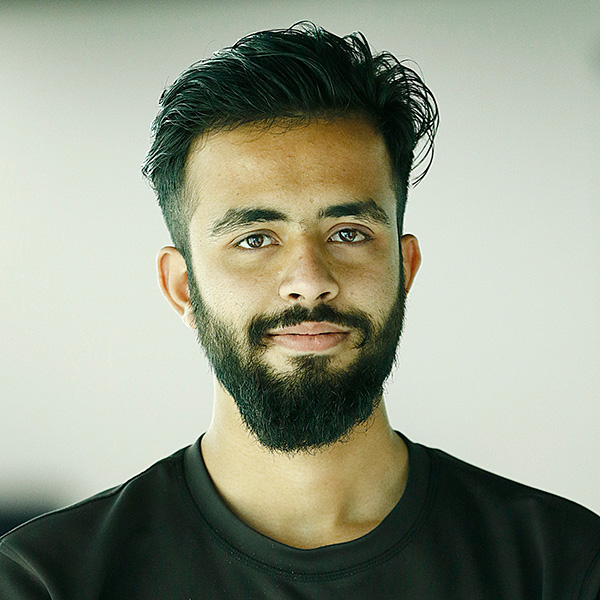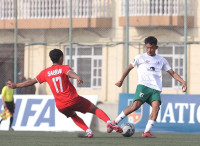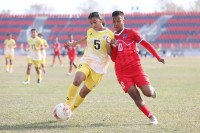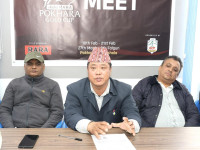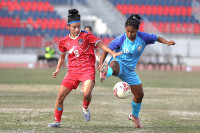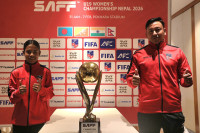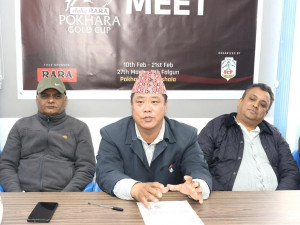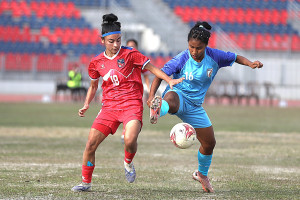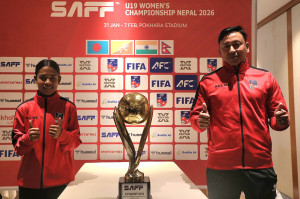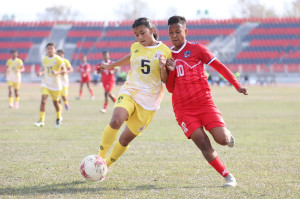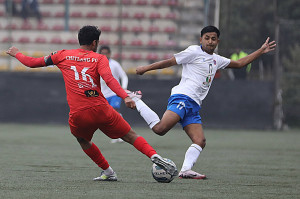Football
‘I won’t return to Nepal if ANFA doesn’t mend its ways’
Head coach of Nepal women’s football team opens up about his frustrations with ANFA’s mismanagement and indifference, despite the team’s inspiring rise.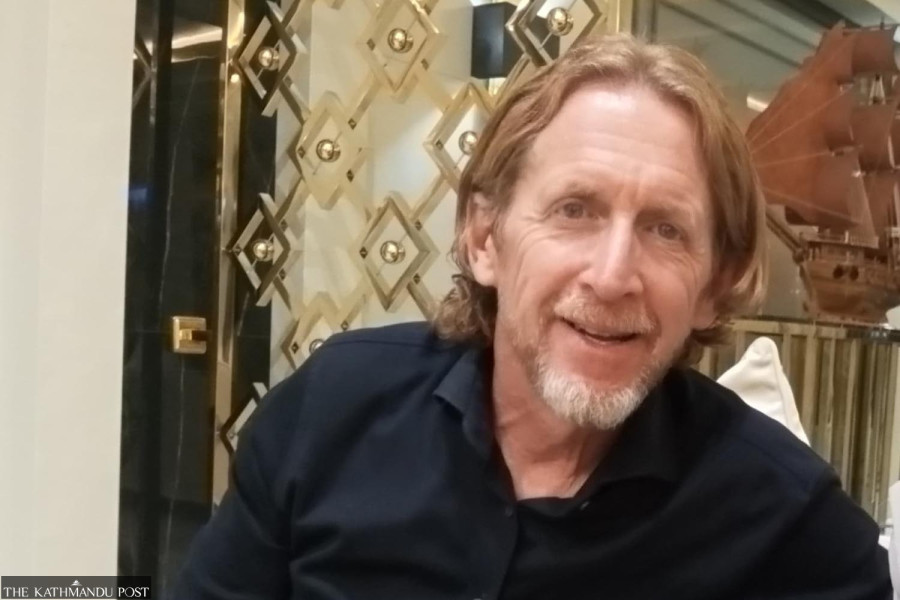
Nayak Paudel
After Nepal’s spirited performance against Uzbekistan in the final of the 2024 AFC Women’s Asian Cup Qualifiers on July 5, national team head coach Patrick De Wilde didn’t hold back. In an exclusive and emotional interview at the team hotel in Tashkent, the Belgian UEFA pro-licensed coach opened up to the Post about his frustrations with the mismanagement at the football-governing body All Nepal Football Association (ANFA), lack of basic infrastructure, and misplaced priorities—despite the team’s inspiring rise.
From fighting for proper hotels and ice for players to calling out the federation’s obsession with politics over planning, De Wilde makes it clear: he came for the players, not the circus. He talks about his vision, pressure, performance, and the deep emotional connection he’s built with the team. But with his future uncertain, one question remains—will ANFA let football grow, or let another coach walk away?
How has your approach been with the team, and how have they responded?
If you work with a group, they need to understand what a team is, what teamwork means, and what the objectives are. The players were clear about what we wanted and where we were going. I only had one question in my first hour-and-a-half with the players: Do you want to be part of this project—yes or no? That was clear to everyone from the beginning.
You need a project, a vision, something concrete. I spoke with the players about this, and they believed in it. From day one, we had a good connection. They have real potential.
What we did today against Uzbekistan—without the help of modern technology or infrastructure—was the maximum. We had a ‘Remontada’. Now imagine if this team had proper support and technology. Nepal needs to scout and profile players. Some types of players, we simply don’t have. That’s part of a long-term project. But now it’s up to ANFA—either they do something, or they don’t. I have a feeling they won’t.
Nepali women’s football comes with many expectations. How should the players deal with such pressure?
That’s another part of the job. In professional environments, you have media officers who manage all that—they handle player interactions with the press, and social media. Social media is part of life now, but it needs to be managed, especially during tournaments. Players must also be taught how to handle things emotionally well.
Today, we had to take penalties, and 3–5 players didn’t want to take one. Why? Because of stress. Not just the game situation—but also things like there’s a meeting [a group video call] with the prime minister at 11am. It puts them under immense pressure.
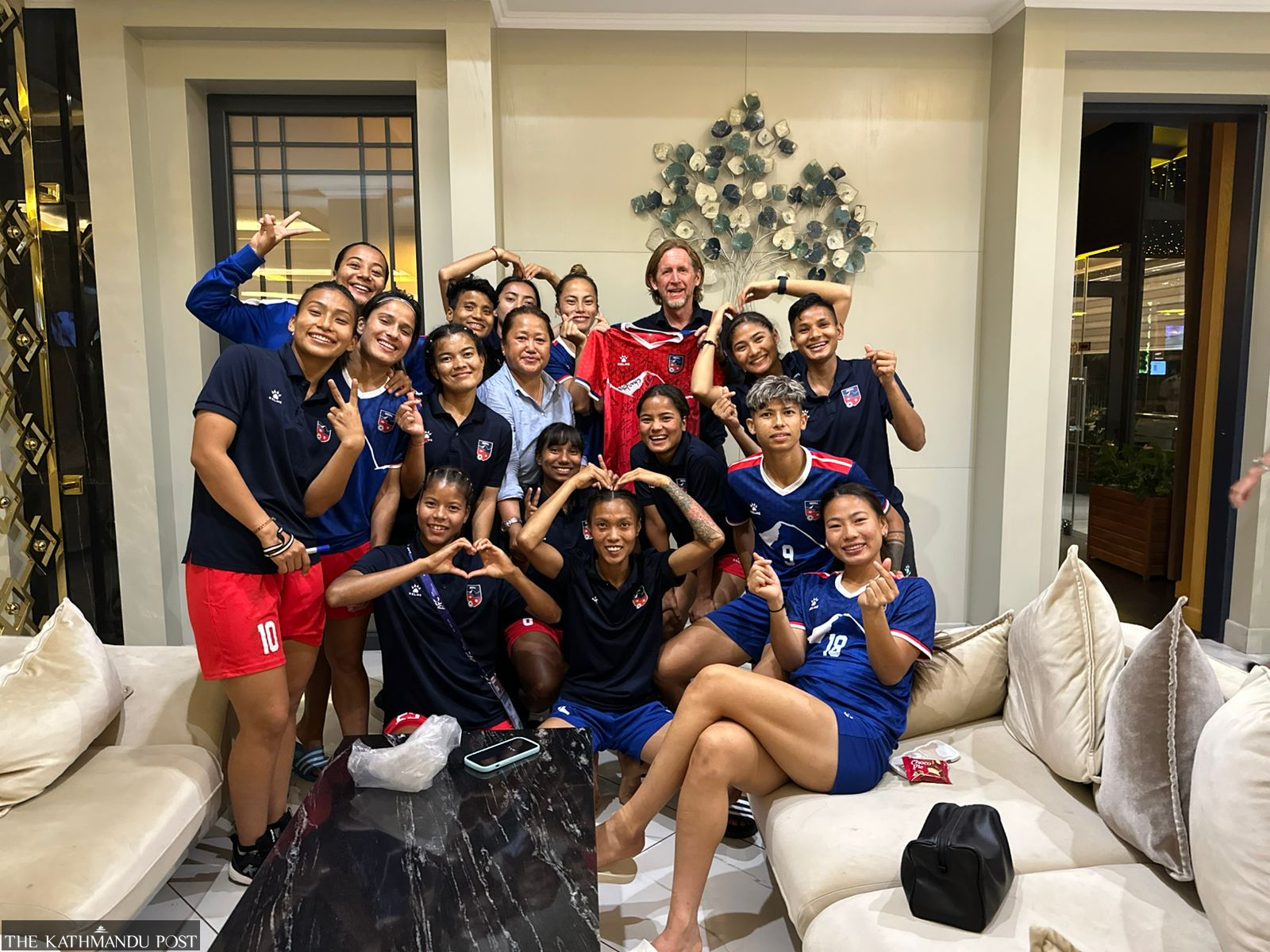
I asked Uzbekistan if their President had called them—they said no. For instance, when Real Madrid plays in the Champions League, does [club president Florentino] Pérez hold a press conference? No. This pressure is not for the players—it’s for others’ benefit.
After our first win, why didn’t they call to congratulate the players or give bonuses? Even a small reward—$20, $50—would’ve motivated the players. But instead, they wait until before the biggest match to call?
We didn’t lose today—we went out on penalties. We played against the world’s No. 51 and made a comeback. We scored 20 goals in three games. What more do you want?
What do you think needs to change in Nepali football?
There needs to be a vision and a technical plan, starting from the grassroots up to the senior team. You need a technical director for at least four years, someone with a long-term commitment. I could implement my ideas during training, but beyond that… nothing.
I asked for basic equipment from ANFA, a physical coach and a video analyst, which should have been at my disposal as per our contract—no response. And during the match day, the technical head tells me, “No worries coach. Do your best.” These people don’t deserve me. But the players do. They were almost crying. The love they gave me—oh—it was overwhelming.
Today’s performance? My friend… ufff. I’ve never coached a men’s team that played like that. They pressed, they ran. Even Preeti—she’s just over 5 feet—jumped against opponents nearly two metres tall.
They saw there’s another way of playing football. We played with three defenders, attacked, and it worked. That’s what makes coaching worth it.
How was your relationship with the management and staff?
With all due respect, I couldn’t even ask for their opinion. They weren’t at the level I needed. If I return, I want to appoint my own staff. I’m happy to work with local people—but I must first know of their competence.
I don’t need an assistant who can’t even open a computer or work with data. How can I take players to the next level without knowing their stats or performance metrics? No GPS, no cameras, no analysis—what am I supposed to do? Fall to the ground?
I’m 61. At this point in life, it’s about happiness. I cannot work with people like this anymore. It’s not just about competence—it’s about character too.
Will you speak to ANFA after going back to Belgium?
I don’t know. I’m not going to call them. If they call, I’ll answer. I want to come back—but only for the players. If I can’t help them anymore, I won’t waste my time.
You can train well, but to perform, you also need happiness. The players were singing, dancing, full of energy. But their support isn’t enough—the leadership must back you. If I return, it will be for the next step—to build something serious.
Can you tell us more about what happened off the field?
From day one—problems. ANFA put the players in a hotel like a hostel—two-star standard, bad food. I stayed elsewhere. I asked them, “Is this a budget issue or something else? You invite me as head coach and separate me from the team?”
I said let’s all stay in one hotel, they said they could arrange 3-star. I said a minimum 4-star. And their faces already showed: “Difficult coach!” No—I was doing this for the players. ANFA should be doing that for Nepali football.
We even had drama about the captain’s armband. Samba is the best player Nepal has ever had. Imagine if we didn’t have her—we wouldn’t win. Others too—like defender Gita and defensive-midfielder Renuka—they’re professionals. Despite the chaos, the players pulled through.
Sometimes there was no ice available at the hotel. If they don’t have it, they won’t even buy it. I don’t care—just do your job.
I could’ve just sipped coffee, given short briefings, and let them play—like many other coaches. But I’m not like that. I’m a different kind of coach. When ANFA says, “Do this, do that”—I say, kiss my [expletive].
Do you know my salary? Do you think I came to Nepal for money? Do you think I had similar contracts before? I didn’t come for money—and yet I have to deal with all this nonsense? I can just stay home, eh? Okay, that’s the conclusion.




 15.12°C Kathmandu
15.12°C Kathmandu